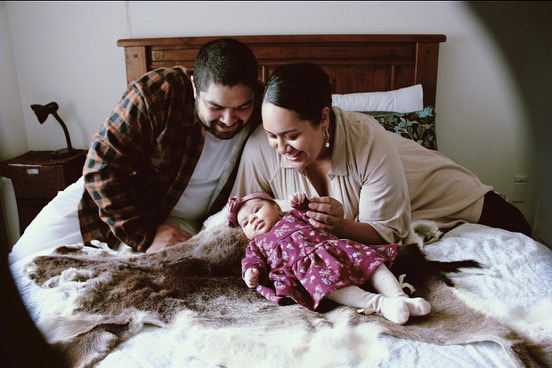Whether you’re employed or self-employed, as a career mum the push-pull forces between work and home will be familiar. Whether it’s sleepless nights, illnesses, the challenges of being a new parent, or the sheer busy-ness of life as a parent, it’s easy to start feeling overwhelmed, and questioning your choices.
Our environment does little to quell these feelings, let alone overturn them, and we can often overlook the enormous value that a career mum brings to the workplace, and to our economy.
There isn’t enough room to list all 21 million reasons, so here are five fantastic reasons to hold your head high, and feel good about what you’re doing.
1. Your contribution is important
As a career mum, you are raising the next generation, whilst also contributing your skills and experience to your workplace and to the economy. The importance of this can’t be overstated, particularly when as an economy we are observing the following two trends:
- Educated women are having fewer children – childlessness is 18 percent for this group, compared with 10 percent for women with no formal qualification. [1]
- We are leaking and under-utilising talent, as women drop out of the workforce, return to a lower skilled role, or curb their career progression following childbirth. This comes at a time when businesses are experiencing a skills shortage, and are striving to increase gender diversity. [2]
As a career mum, therefore, allow yourself to think positively about your journey, and to channel this energy towards positive actions that will help you thrive.
2. Dividing time between work and family can benefit everyone
Whilst children of course benefit from being with their parents, a mounting body of research shows there are social, economic and educational benefits to having a working mum, for both boys and girls. Daughters are more likely to complete more years of education, more likely to be employed – and in supervisory roles, and earn higher incomes. Meanwhile sons of working mothers are more likely to spend more time on childcare and doing the housework. Returning to work can also offer women a sense of self-fulfilment, and valuable interaction with other adults, away from their children. [3]
Finding the right trade-off in time between work and family can therefore be beneficial for all. It can also enhance the quality of time the family has together. This will be individual to you, but focusing on this can dampen that feeling of guilt that often accompanies returning to work.
3. You are helping others believe
Whether you realise it or not, you are a picture of a career mum. Others will see this, and are likely to be influenced in one way or another by the fact that you work, and by the subconscious messages you convey through your body language, behaviours and actions. Embrace it. Dividing time between career and family isn’t easy, and you needn’t pretend it is, but allow yourself to feel good about what you’re doing, despite the challenges.
4. You are changing the working landscape for women
Gender diversity is not only an ethical imperative, it has also been shown to improve business performance. Achieving true gender diversity, and growing the number of women succeeding in business, and in senior decision-making roles, means that as an economy we must get better at supporting women to re-engage their career alongside family. Supporting returnship is crucial to boosting the pipeline of women progressing to senior roles, and to positively influencing mindsets around career and parenthood. [4]
So next time you have a workplace “parenting” need that’s not being accounted for, consider that by putting it out there, not only will you help to fulfil your own needs, but chances are you’ll also be helping to shape a better environment for other parents and parents-to-be in your workplace.
5. You can make flexible working work for you, and for others
Flexibility is a key enabler for women looking to re-engage their career, whether it’s in the form of part-time hours, flexible hours, working remotely, or any other form of flexible working. Covid-19 has forced businesses to adapt to flexible working, which is a huge step forward for supporting the flexibility often required by parents with dependent children, and for helping to balance the parenting load, which we’ve traditionally seen default to the mother.
BUT, we are still slow to recognise the importance of flexibility with hours, and this is evidenced through the lack of jobs advertised as part-time. Part-time hours are often negotiated from within, and not advertised. And they are often negotiated to meet the needs of returning parents. However, this often leads to unrealistic expectations as a result of agreeing to do a full time role in part-time hours without genuinely resizing the role.
The ability to work part-time is often a key need for parents, and is crucial to enabling career continuity alongside family – to the extent that a lack of contestable part-time opportunities is contributing strongly to the talent loss we’re observing with women taking a step back in their career or dropping out of the workforce after having children. And it can often lead to mental and financial stress for women and their families.
There is no reason why we can’t get better at this. Your skills and experiences should not become meaningless or be disregarded because you’re seeking balance between career and family. So if you’re one of the many women who are disheartened by the lack of part-time hours being advertised, I encourage you to reach out to prospective employers to have this discussion.
And if you’re struggling under the weight of doing a full-time job on part-time hours and salary – please speak up. Your skills and experiences are an asset to your workplace, and to our economy. Getting this right is a win for everyone, no less your own wellbeing, and will inevitably support others in your organisation who are in a similar position.
If you’re an employer, getting this right is one of the most effective things you can do to attract and retain talent, and progress gender diversity! What if the hours of your next role were negotiated with the best candidate? You might just be surprised at the response you get from the lucrative pool of talent that’s looking for reduced hours.
Hold your head high, take positive action, and help shape the landscape
Little prepares us for the challenges of being a career mum. This is a busy time, and the realisation that you can’t do everything can be hard-hitting.
Amid these challenges, allow yourself to appreciate the importance of what you’re doing and why, and to frame a positive mindset around it. This positivity will go a long way towards empowering you to succeed in your dual role, by helping you to speak up for your needs, and ultimately towards shaping a better landscape for parents in the workplace.
Our ambitions are a big part of what defines us, and the ones that are truly important will not disappear after having children. So allow yourself the opportunity to progress towards these ambitions, and to feel good about it. Chances are, those around you will also benefit from you doing this.
—
[1] Figures taken from the New Zealand Census 2013, and pertain to the private sector. Educated women, in this case, are defined as having a bachelor’s degree or higher.
[2] Winning the fight for female talent: how to gain the diversity edge through inclusive recruitment. PwC, March 2017
[3] See:
– Miller, C.C. Mounting Evidence of Advantages for Children of Working Mothers. Published in NY Times, 15 May 2015.
– Sugar, R. Study Finds Being Raised by a Working Mum Can Lead to Greater Career Success. Published in Business Insider Australia, 20 May, 2015
– Miller, C.C. Mounting Evidence of Advantages for Children of Working Mothers. Published in NY Times, 15 May 2015.
– Sugar, R. Study Finds Being Raised by a Working Mum Can Lead to Greater Career Success. Published in Business Insider Australia, 20 May, 2015
[4] Tracking Equality at Work 2016: Human Rights Commission (hrc.co.nz).



